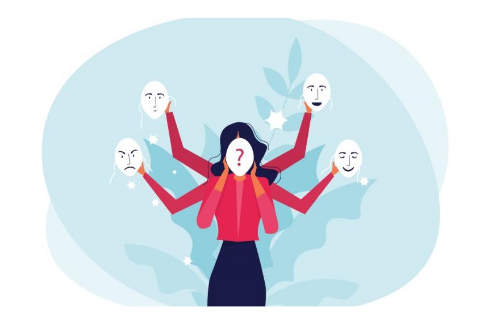It is quite normal for us to feel anxious, nervous, or worried when we sit for an exam, during a work-related presentation or even before a date. For most of us, these feelings come and go, they are just temporary indications of the different things that matter to us.
However, if you are someone who constantly experiences these anxious feelings on a day-to-day basis, to a point where it affects your simplest daily routines; you could be dealing with an anxiety disorder. An anxiety disorder is more than just the usual passing worries and stressful encounters, it is very gripping and debilitating, as the severe negative emotions almost never subside and can interfere with your everyday activities. Here is where you may ask – How do I differentiate between anxiety and the common worries and stressors that an average person experiences?
It is important to note that symptoms of anxiety can vary from person to person. That being said, the body generally reacts similarly to anxiety, due to natural fight or flight responses, causing a range of common symptoms that people tend to experience.
Here are some common mental and physical symptoms that could be a sign of anxiety:
- Extreme nervousness
People with anxiety often feel excessive nervousness. These nerves are usually disproportionate to the events that trigger them but are quite intrusive and are difficult to tame and control. This nervousness can also cause someone to feel restless, agitated or tense.
- Inability to focus
You are consumed by something that is troubling you, therefore, you may find it hard to complete a task or pay attention to anything besides that one thing.
- Irrational fears
Feelings of danger, dread and panic often surface with anxiety. Even the most ordinary activities can seem endangering and trigger unwanted emotions that are usually greater than the reality of the situation.
- Insomnia
Insomnia is a sleep disorder. Anxiety can disrupt one’s sleep schedule in a variety of ways; difficulty falling asleep, waking up exhausted, tough time staying asleep, nightmares or even waking up too early.
- Rapid heartbeat and breathing
Hyperventilation and heart palpitations can feel very scary. Ironically, these symptoms along with excessive sweating, are usually your body’s response to fear. They can also occur in slightly varied manners; breathlessness, chest tightness, suffocation.
- Gastrointestinal problems
Anxiety can cause abdominal cramps, loss of appetite, nausea, indigestion, or irritable bowel syndrome, which can be painful and uncomfortable. While these symptoms are not life-threatening, they can be chronic and impact one’s quality of life.
- Fatigue
Do you feel drained and exhausted? Anxiety can do that to someone. This fatigue can be both mental and physical. You may feel yourself lacking energy, motivation, strength or all three.
- Avoiding Situations
People with anxiety tend to fear upcoming social events or they will purposefully avoid things and situations that trigger any unwanted emotions and reactions. However, this only builds their fear and inhibits them from having a quality life.
Now you are aware of 8 common symptoms of an anxiety disorder. Do you think that you have anxiety, or do you know someone who does? Reach out and ask for help here! Know that you are not alone.



